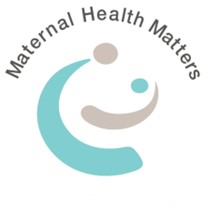Our Context
Maternal Health Matters is a community organisation bound together by a common goal: to ensure that pregnancy, childbirth and the transition to motherhood is safe. We promote health and wellbeing for all girls and women.
A healthy, strong and confident mother gives a baby the best start at birth, influencing the long-term wellness of herself, her child and our community. Therefore we need mothers to be well physically, emotionally and culturally.
Irrespective of their socioeconomic setting all pregnant women and their babies during pregnancy, childbirth and the postnatal period have a right to optimal woman-centred care, through a holistic, human rights-based approach that provides a respectful birth experience and positive outcome.
MHM campaigns to uphold the rights of all women to be safe and healthy before, during and after childbirth, and to ensure that they realise their human rights, through the adoption of The Respectful Maternity Care Charter: the Universal Rights of Childbearing Women.
Respectful maternity care (RMC) is quality care that focuses on a woman’s basic human rights, that recognises her autonomy, dignity, feelings, choices, and preferences. Furthermore, cultural, emotional, social, psychological and spiritual safety, are important components of RMC. Without respectful maternity care the safety of mothers and babies is being compromised on a routine basis. Women need responsive, sensitive maternity care systems that cater for her needs and respect for her human rights. No matter the context, every woman has the right to experience respectful maternity care.
Many women in Australia have access to antenatal, birth and post-natal care resulting in positive outcomes for both mother and baby. Unfortunately, however, for groups who experience disadvantage such as; young women; women with a disability; women with culturally and linguistically diverse backgrounds; and Aboriginal and Torres Strait Islander women the experience can be a vastly different.
As, the foundations for health are laid early in life and are influenced by genetic, behavioural and environmental factors, a commitment is required to not only recognise the unequal access to conditions and resources that support health but also to address the social systems, that reproduce these inequalities.
This webpage provides evidenced based information to assist you to be informed. Nothing in this webpage shall be construed as advice from a maternity care provider. This webpage is strictly intended to provide information regarding its subject matter and may not apply to you as an individual. It is not a substitute for your own maternity care provider’s advice. It you require maternity care please see a midwife or a doctor.
